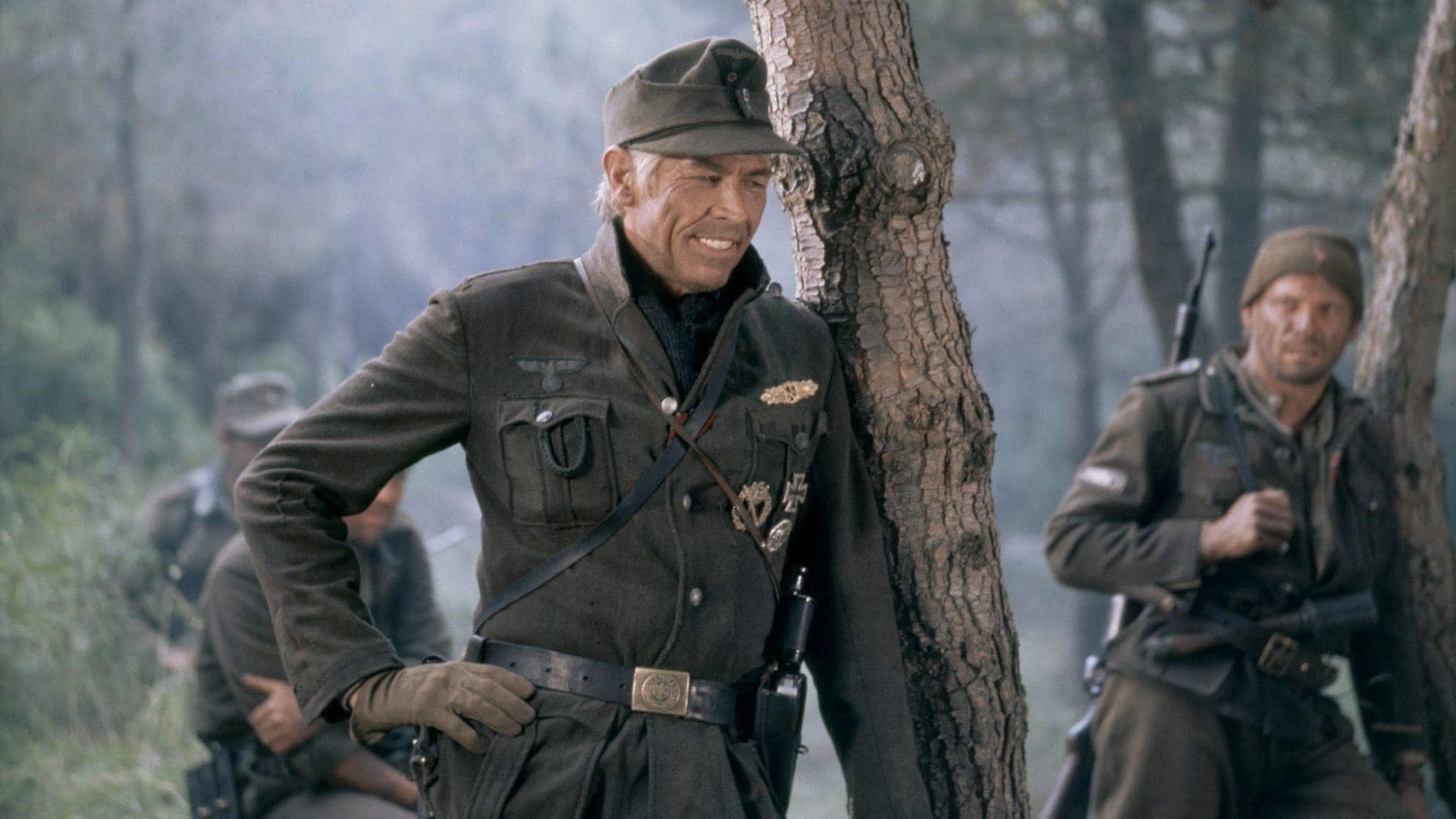“Cross of Iron” (1977)
- movieslovers
- July 14, 2024

“Cross of Iron” (1977), directed by Sam Peckinpah, is a powerful war film set on the Eastern Front during World War II in 1943. Adapted from Willi Heinrich’s novel “The Willing Flesh,” the movie delves into the complexities of war, honor, and leadership amidst the brutal conflict.

At its core, “Cross of Iron” focuses on Corporal Rolf Steiner (played by James Coburn), a seasoned and pragmatic soldier respected for his courage and loyalty, and Captain Stransky (played by Maximilian Schell), an ambitious Prussian officer driven by personal ambition and the desire to earn the prestigious Iron Cross to uphold his family’s legacy. Stransky, lacking combat experience, commands Steiner’s platoon with little regard for the lives of his men, solely focused on achieving his goal of glory.

Against the backdrop of a Soviet offensive, Stransky orders Steiner’s platoon on a dangerous mission to defend a crucial position. The ensuing battle scenes vividly depict the chaos, horror, and futility of warfare, underscoring the film’s anti-war sentiments and critique of military hierarchy. As the conflict escalates, Stransky’s incompetence and cowardice become increasingly evident, leading him to fabricate heroic deeds in a desperate bid for undeserved recognition.

“Cross of Iron” is celebrated for its gritty realism and Peckinpah’s direction, which emphasizes the harsh realities of war. The film explores moral complexities as Steiner confronts Stransky, highlighting themes of betrayal, disillusionment, and the profound human toll of armed conflict. It stands out for its uncompromising portrayal of the brutality of war and its poignant commentary on the sacrifices made in the pursuit of honor and glory.

Overall, “Cross of Iron” remains a revered classic for its unflinching examination of wartime realities, its exploration of characters grappling with conflicting loyalties and ambitions, and its powerful critique of the personal costs of military honor.











